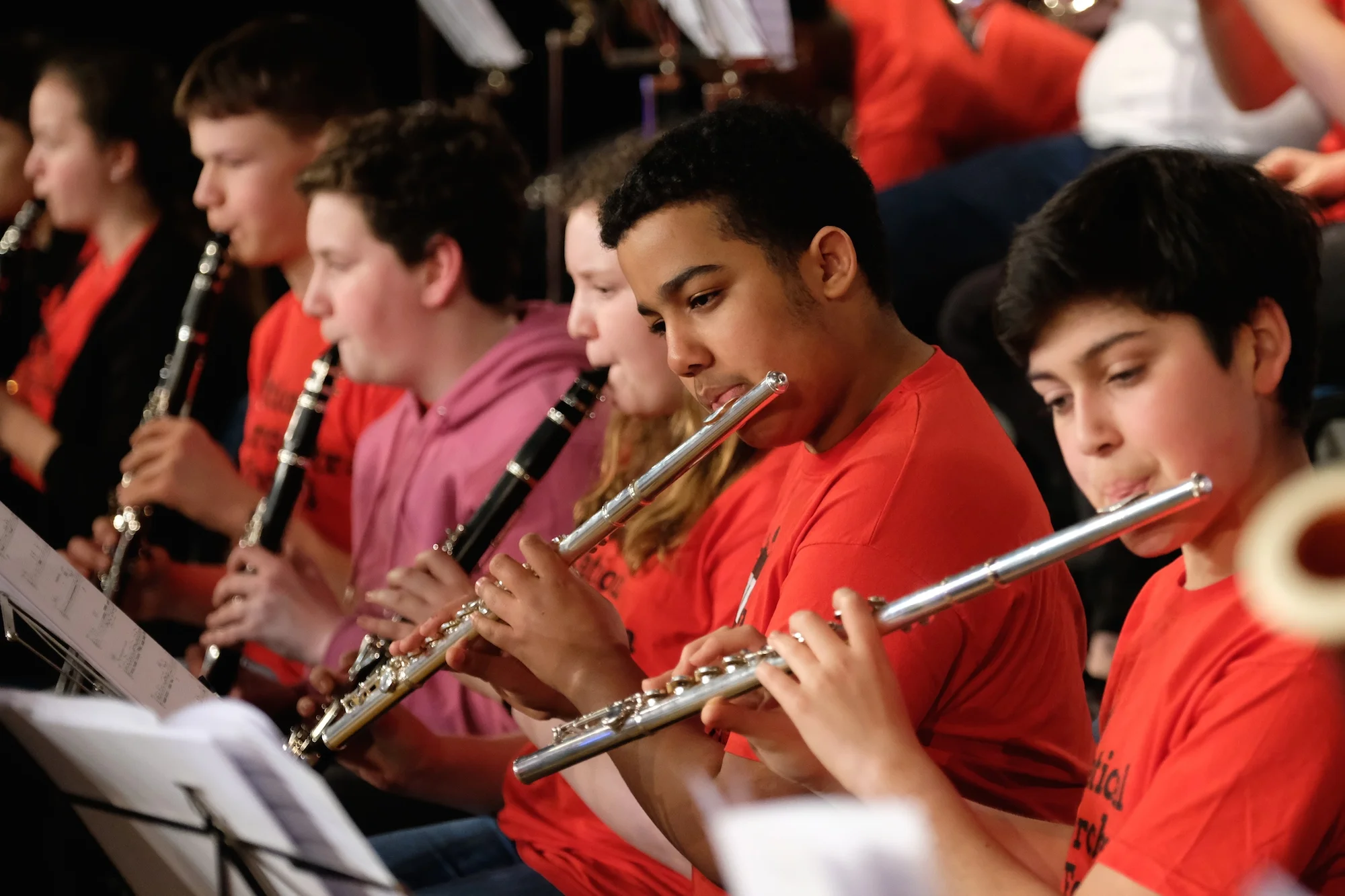As our 2017-2018 Orchestras for All (OFA) season Music and Dance: Rhythm of Life draws to a close, our attention is turning to our new season, WordPlay, and the exciting repertoire and creative activities we have planned for 2018-2019. WordPlay will explore the inter-connectedness between music and words looking at how music can communicate, tell stories and convey meaning. We will be learning and creating repertoire that celebrates music inspired or influenced by both the written word and the spoken word.
As ever, we have been ambitious in our artistic planning for WordPlay, programming a range of repertoire that challenges the young musicians at OFA both musically and intellectually. We have chosen works and high level artistic processes that may traditionally be perceived to be ‘out of reach’ for young musicians, especially young musicians of such a mixed ability range on their instruments.
Indeed, at a recent gathering of music educators, music organisations and professional musicians (including the esteemed conductor Marin Alsop) we were asked to consider the question ‘what repertoire is suitable for mixed ability youth groups and mass performances?’ My immediate response to this question was ‘what repertoire isn’t suitable?’ This opinion, I was pleased to learn, was shared by Marin as well as fellow attendee that afternoon, Alexander Bernstein – the son of the late, great Leonard Bernstein, now president of the Leonard Bernstein Centre for Learning and lead proponent of Bernstein’s philosophy of Artful Learning. This question – ‘what repertoire isn’t suitable?’ - is the starting point at OFA whenever we plan an artistic programme of work for our young people. We are firmly of the view that no repertoire is or should be perceived as ‘out of reach’ or ‘inappropriate’ for the mixed ability instrumentalists we work with across all our OFA programmes.
At OFA, in partnership with our team of arrangers and composers-in-residence, we are working all the time to devise ways in which any piece of music can be created, composed and arranged so that young people of all abilities can access it. We have been known to change key signatures to make the music easier. For example, in OFA world the first movement of Beethoven’s Fifth Symphony is played in D minor, changing the pesky three flats of the original key signature to just one, which makes it more accessible to beginners. We regularly cut whole chunks of music or simply take key themes from a well-known work and re-arrange them in shortened form to suit our needs (Dvorak’s New World Symphony, Mussorgsky’s Pictures at an Exhibition and Stravinsky’s Firebird to name a few). With skilful arrangers and ensemble leaders, we are able to introduce our young musicians to some of the world’s greatest pieces of music often after only a few short weeks of them playing their instrument. We have long held the view at OFA that this experience provides far greater incentive, joy and impact than playing music in an orchestra for the first time aged 16 with titles such as My First Notes. Indeed, it is a crucial element of the impact we are looking to have on our young people – by treating them and respecting them as professional musicians in terms of the repertoire we choose, this in turns contributes directly to the changes we hope to see in terms of their confidence, self-esteem, motivation and efficacy.
Our 2018-2019 WordPlay season will be no exception in terms of this approach. Over the course of the year we will be creating a major new work based on the dialects, accents and language of the young OFA musicians themselves. In addition, we will also be learning pieces based on the prosody (i.e. intonation, tone, stress and rhythm) of spoken word such as Benjamin Britten’s Night Mail and we are delighted to have commissioned OFA composer-in-residence, Jack McNeill, to develop a contemporary response to Britten’s work in collaboration with spoken word artist, Tyrone Lewis. We will be arranging music that has evolved from the tonal languages of Africa to three well known opera choruses and works based on the written word such as Vaughan Williams’s Lark Ascending.
The extent to which our young musicians at OFA rise to the artistic challenges we set them never ceases to amaze and inspire me. They consistently engage with open minds and ears with the repertoire we arrange as well as the creative activities that involves them as collaborators and co-creators of new work. Our artistic future at OFA is bright and ambitious and I look forward to leading the organisation artistically as we continue to push the boundaries of musical inclusivity!



